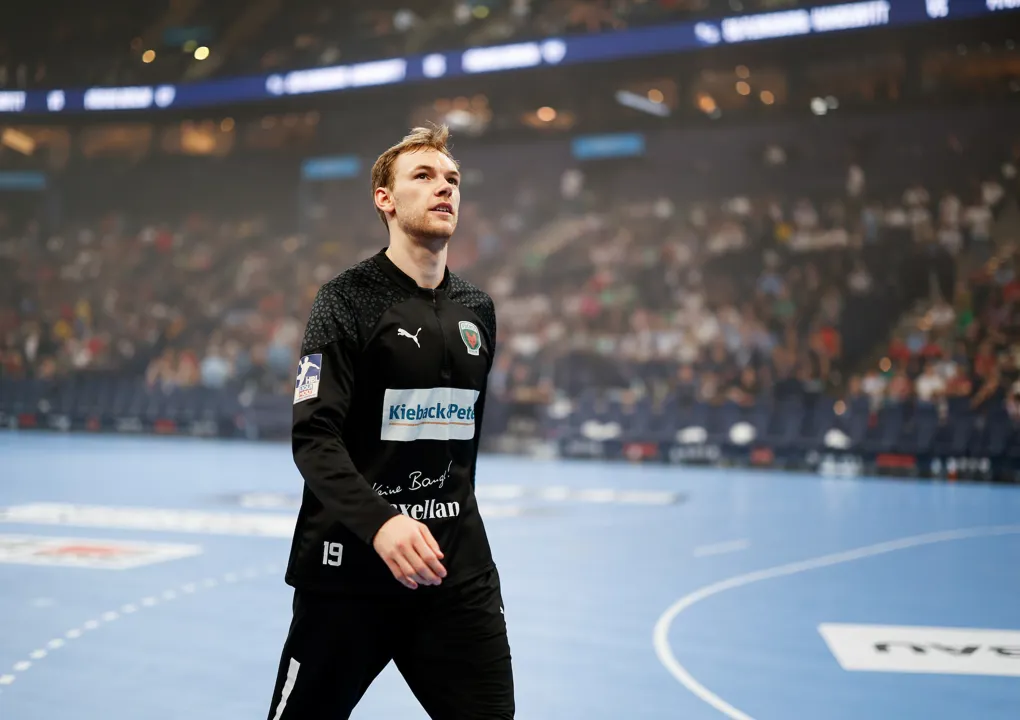Gidsel is a big presence in attack and plays a smaller role in defence, but he applies the same way of thinking at his teams’ own end of the court. “Defence has always been a part [of the game] I want to be a bigger part of,” says Gidsel. “I'm a little bit, sometimes, hidden away on the wing, but for me I also see the defence just like the opposite of attack, as the same chess.
“It's also study. You're trying to use the first 10 minutes to see how are they reacting. Are they looking for the guys they are playing or playing the ball in blind? And so on. Just trying to figure out all those small chances that get created and then you have to really be ready when you have the small chances.”
Learning to deal with pressure was an important part of Gidsel’s national team journey in particular. Now, in 2024, he returns often to the concepts of responsibility and pressure when speaking about the game — two elements he has clearly identified as vital to master.
And that makes sense: The greats of any team sport are those whose influence goes beyond their own individual sphere, who can be such a strong individual they raise the team to a new level through what they bring to the field of play. Those who can be the one to score just when it seems impossible, showing their team that the limits do not lie where they might have thought and can be stretched.
“I was quite young when I joined the national team and I’ve played in a lot of finals already now,” says Gidsel. “That pressure and those experiences standing in the finals almost every January, they give you a lot of experience as a handball player, as a person.
“When you can accept that there is a lot of pressure, especially on some of the best players and especially on the Danish national team, then you can also start having fun and start to look around in those arenas you play for when you play in finals — when you are playing in LANXESS arena, you are playing Stockholm in front of 20,000, playing the Olympics in front of 27,000 people — and then you can start enjoying it.
“For me it's all about having fun, and I hope people can see it when I'm on the court — that I'm just a small guy who is having fun. And of course, the pressure, you just need to learn how to handle it. And that is very individual, how you handle it. But for me, it's all about accepting it and also knowing it comes only because you are good at what you're doing.
“One thing is to be a good handball player — that's maybe the easy part. But the hardest part is to be a guy who can handle the pressure, to be a guy who can say, ‘hey, give me the ball’ or to be the guy your teammates always can get energy from. That's a longer learning progress than just what I've been through, but I think that's the thing I can develop most.
“I think that’s an untold but really important thing in the handball world.”
Every sport combines physical and mental elements in its own way. For Gidsel, it is the complexity of handball that makes it so interesting.
“A lot of players are popping up which are not so big anymore, are not shooting from 10 metres, but are more wise and clever. For me, I think that's why handball is so amazing, because size doesn't matter. It's always about thinking and being one step ahead. Handball is so complex, so difficult a game, that you can learn something new every week, every day even. I also get some new ideas every time I’m in a handball game — it’s like ‘oh, now you can maybe do like this,’” concludes Gidsel. “It’s the most amazing sport for me.”
September 2024















